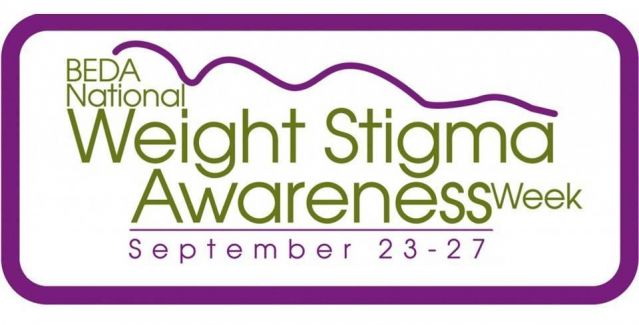Bias
Are You a Fat-Shamer?
Weight stigma is a largely socially acceptable prejudice. Are you a shamer?
Posted September 25, 2013

An updated version of this post is available here.
"Imagine a world where people are supported in living happy, healthy lives, free of judgment about the size of their bodies… this is the mission of BEDA’s Weight Stigma Awareness Week."
September 23-27 2016 marks the 3rd annual Weight Stigma Awareness Week spearheaded by the Binge Eating Disorder Association (BEDA). Weightism may be the last socially acceptable prejudice in our culture — occurring more frequently than gender, sexuality, age, or religious discrimination (Puhl, Andreyeva, & Brownell, 2008). Not convinced? Click here, here, here, and here to read examples of disturbing fat-shaming incidents. Click here to view photographer Haley Morris-Cafiero's brilliant photos in which she busts shamers who are being judgmental.
What is fat-shaming?
It's an act of bullying, singling out, discriminating, or making fun of a fat person. The shaming may be performed under the guise of helping the person who is overweight/obese to realize they need to lose weight or they will die, become ill, and/or never succeed in life or relationships. Fat-shaming is an individual bias against people who are considered unattractive, stupid, lazy, or lacking self-control.
Fat-shaming doesn't work.
We now have scientific proof that fat-shaming is ineffective in helping people lose weight. A recent study led by psychologist Angelina Sutin at the Florida State University College of Medicine found that overweight individuals who experienced weight discrimination were over two times more likely to become obese by the end of her study, four years later. Participants who were already obese were three times more likely to remain obese by the end of the study.
If fat-shaming doesn't work, why do so many still discriminate?
Weight discrimination and stigma continue to exist, at least in part, due to the belief that this type of shaming has an admirable purpose — to motivate people to lose weight. Fat shaming persists, quite simply, because we aren't doing enough to fight it. We've become numb to the nonsensical manifestation of ignorance and hate.
Are you a fat-shaming bully? Signs you are part of the problem:
- Feels superior in comparison to overweight or obese people
- Makes jokes about fat people seen in public or in the media
- Teases friends or family about their weight in attempt to be "funny"
- Allows for family members to make fun of fat people
- Views thinness as an attribute of success, happiness, or self-control
- Critical and judgmental of others — assumes weight is a lifestyle choice
- Makes assumptions of personal character or morality based on appearance or size
- Views diets as a quick fix and easy solution to weight issues (research shows that diets = weight gain)
- Looks down on others who do not adhere to "clean eating"
Weight is not a behavior, and obesity in and of itself isn't a disease. Despite the AMA's recent decision to classify obesity as a disease, there are numerous individuals who are obese with a perfect bill of physical health. However, obesity is linked to several medical conditions, as well as underlying emotional issues (e.g., excessive shame and guilt). Scare tactics, shaming, and discrimination aren't acceptable interventions to combat the issue. Help efforts should focus on modifiable actions, such as health and wellness screenings, physical exercise, television and video game time limits, meal planning, self-esteem building, balanced lifestyles, and healthy self-expression. Be a part of the solution by ditching any shaming behaviors and supporting compassion.
"Problems cannot be solved by the same level of thinking that created them." —Albert Einstein
Follow Finding Cloud9 on Facebook, Twitter and Pinterest!
Copyright © Finding Cloud9, Dr. Jamie Long


